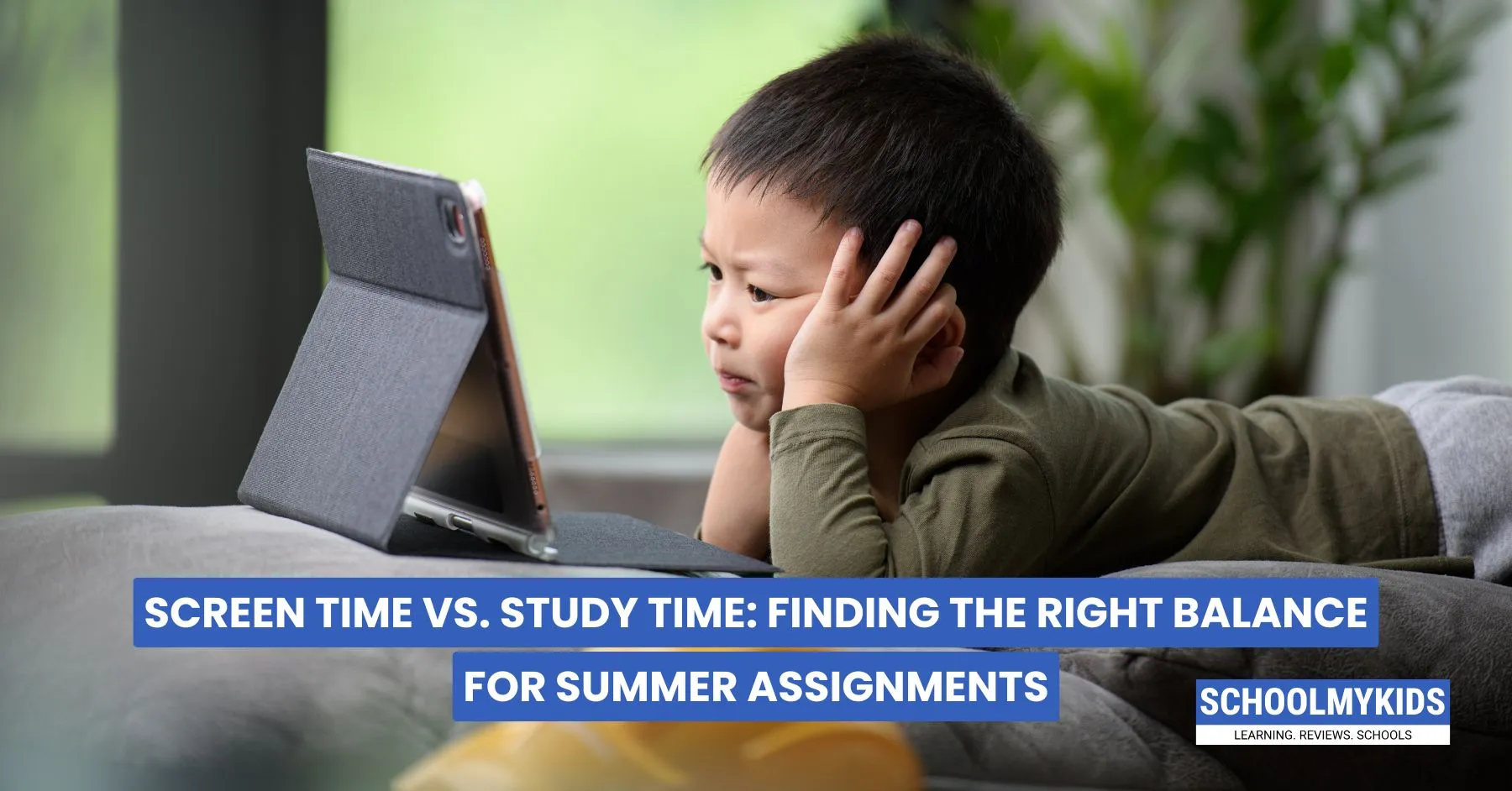If you’re a parent, you know the summer struggle: your child’s summer assignments are waiting, but so are YouTube, games, and endless scrolling. Every year, we hope things will be different. But as soon as the holidays start, screens seem to win every battle. The result? Homework gets pushed aside, tempers flare, and everyone ends up frustrated.
Let’s talk about how to actually help your kids balance screen time and study time this summer without the old-school lectures or guilt trips. Here’s how you can work with your child, not against them, to create better habits and a happier home.
Why Is It So Hard to Balance Screen Time and Study Time?
First, let’s be honest about what parents face:
- Kids have more access to screens than ever—phones, tablets, laptops, TVs.
- Screens are designed to be addictive. One video turns into ten; one game turns into hours.
- Summer feels like “free time,” so kids resist anything that feels like school.
- When you try to set limits, you get pushback—tantrums, excuses, even sneaky behavior.
- Parents are busy, too, and sometimes it’s just easier to let kids be on their devices.
Modern Solutions for Real-Life Challenges
1. Co-create a Daily Routine (That Actually Works)
Forget strict schedules that no one follows. Instead, sit down with your child and make a simple daily plan together. Use a digital calendar or a whiteboard—something you both can see. Let your child pick when they want to do their assignments and when they can have screen time. Giving them some control makes them more likely to stick with it.
2. Use Tech to Your Advantage
There are apps that help manage screen time and even reward kids for completing tasks. Try apps like Google Family Link or Apple Screen Time to set healthy limits. Some apps let kids earn extra screen time by finishing homework or chores. This way, tech becomes a tool, not the enemy.
3. Make Study Time Short and Sweet
Kids have short attention spans, especially in summer. Break study time into small chunks, like 20-30 minutes, followed by a break. Use timers or “study with me” videos on YouTube to keep them focused. After each study session, reward them with a short screen break.
4. Turn Screen Time Into Learning Time
Not all screen time is bad. There are tons of educational games, documentaries, and learning apps that can help with summer assignments. If your child needs to research or create a project, let them use their device for that purpose. This way, screen time and study time can sometimes overlap.
5. Be Real About Tantrums and Excuses
Kids will test limits. You’ll hear things like, “Just five more minutes!” or “I’ll do it later!” When this happens, stay calm. Remind them of the plan you made together. If they keep pushing, let them know that extra screen time will be cut tomorrow. Stay consistent and avoid getting into power struggles.
6. Model Good Habits
Kids notice what you do. If you’re always on your phone or laptop, they’ll want to do the same. Try to have device-free times as a family, like during meals or outings. This sets a good example and makes it easier for your child to unplug.
7. Keep Communication Open
Instead of nagging, ask your child how they feel about their assignments and screen time. Listen to their concerns and adjust the plan if needed. Sometimes, kids just want to be heard.
8. Celebrate Small Wins
Every time your child sticks to the routine finishes an assignment, or turns off their device without a fuss, celebrate it. Praise goes a long way. Maybe plan a family outing or a special treat at the end of the week.
Common Challenges and How to Handle Them
- “Everyone else is online!”: Remind your child that every family is different. Focus on what works for your family, not what others are doing.
- “I’m bored!”: Have a list of fun, non-screen activities ready—like board games, crafts, or outdoor play.
- “I forgot!”: Use reminders—alarms, sticky notes, or calendar alerts—to help your child remember their study time.
- “Homework is too hard!”: Offer help or let them use educational videos or forums to find answers. Sometimes, a quick search can make things easier.
Conclusion
Balancing screen time and study time in summer isn’t about strict rules or endless battles. It’s about working together, using modern tools, and being flexible. With some planning and a whole lot of patience, you can help your child build better habits—and still enjoy a fun, relaxing summer together.









Be the first one to comment on this story.